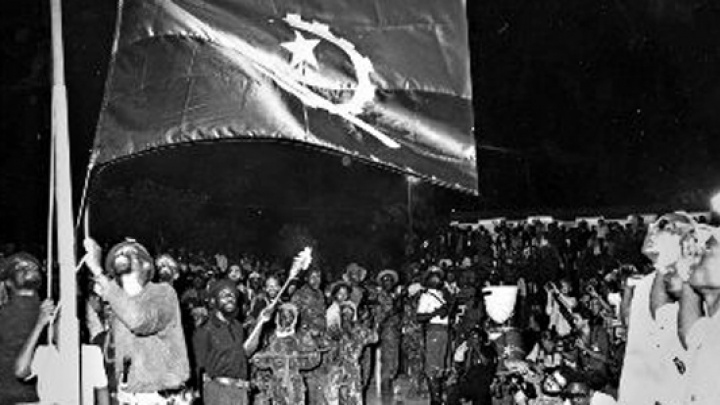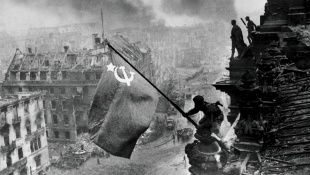On the occasion of the 50th anniversary of the February 4th.1961 uprising, which marked the beginning of the armed struggle for the national liberation of Angola, the Portuguese Communist Party salutes the Popular Movement for the Liberation of Angola – MPLA- and the Angolan people.
In the dawn of February 4th. 1961, militants of MPLA stormed São Paulo Jail and the Incarceration House, in Luanda, in order to free jailed Angolan patriots. This action by MPLA began a new stage in the liberation struggle of Angola. The Portuguese fascist colonial regime reacted with brutal repression.
The February 4th. 2011 uprising is a historic landmark in the heroic struggle of the Angolan people and of MPLA against colonialism and imperialism, which would culminate fourteen years later in the conquest and proclamation of Independence, on November 11th 1975.
The beginning of the armed struggle in Angola, led by MPLA, is followed by the armed struggle of PAIGC, in Guinea-Bissau, in January 1963, and FRELIMO, in Mozambique, in September 1964.
PCP always adopted an unequivocal attitude and a position of fraternal and committed solidarity for a full emancipation of the peoples colonised by Portugal, showing solidarity from the very first moment, with the national liberation struggle and the right to independence of the colonised brother peoples, establishing fraternal links with the national liberation movements, considering them allies of the Portuguese people in their struggle against the fascist dictatorship and imperialism.
The common struggle of PCP and the liberation movements – MPLA, in Angola, PAIGC, in Guinea-Bissau and Cape Verde, and FRELIMO, in Mozambique -, of the Portuguese people and the African brother peoples against fascism and colonialism, forged deep relations of friendship.
PCP considered as one of the fundamental factors of the liberation of the Portuguese people from fascism – stated in its «Programme for a Democratic and National Revolution» -, the end, not only of the colonial wars, but also of colonialism, unequivocally expressing its recognition of the right to an immediate independence of the peoples subjected to the Portuguese colonialism.
PCP considered that the solidarity of the Portuguese people towards the movements liberating peoples subjected to the oppression and exploitation of fascist colonialism would objectively represent a contribution to the struggle of the Portuguese workers and people for their own liberation, proving the principle that no nation can be free if it oppresses other nations.
During the years of fascism, PCP was the political force in Portugal that strongly fought, from the first moment, against the colonial war, against sending Portuguese soldiers to war, denouncing the crimes of the colonial army and political police – PIDE – against the African people, uniting Portuguese democrats and progressive people, forging and widening the resistance and struggle of the Portuguese people against the colonial war.
The degree of cooperation between the liberation movements and the more progressive sectors of the colonising state, between the colonised people and the people of the colonising state, was a significant factor in the history of the anti-colonial struggle,
PCP intervened, both in Portugal and at the international level, against the colonial war and in solidarity with the liberation movements, among other examples, denouncing the atrocities against the peoples of Angola, Guinea and Mozambique; unveiling the misinformation and manipulation campaigns of the fascist regime; organising and ensuring the underground departure from Portugal of Agostinho Neto and other leaders of the liberation movements; spreading the messages of the leaders of liberation movements to the Portuguese people; organising, through ARA, sabotage actions in Portugal against the colonial war machine.
PCP intervened in various ways for the rejection of the colonial war, acting and calling for an active action of explanation, of awareness and mobilisation of the Portuguese soldiers against the colonial war. PCP, although appealing its militants for the need to remain in the Armed Forces (in Portugal and in Africa), to lead there a revolutionary activity, considered the movement of desertions as a great movement of resistance against the colonial war and colonialism.
The growing and fast awareness of many armed force soldiers against the colonial war, but also against the fascist regime that imposed it – and with the experience of the struggle gained in the anti-fascist movement, expressed the wish of the Portuguese people to put an end to the colonial war and to fascism – led to the creation of the Armed Forces Movement, which germinated the revolutionary determination to overthrow the fascist dictatorship and achieve peace.
The armed struggles of national liberation, conducted by the national liberation movements gave a great contribution in isolating and unmasking the fascist and colonialist regime, including within the United Nations Organisation, in an international framework favourable to the liberation movements, with the backing of the socialist countries and of the non-aligned countries.
The struggle of the African brother peoples merged with the struggle of the Portuguese people, culminating in the overthrow of fascism, on 25th April 1974, in the April Revolution, in an end to the colonial war, in winning independence in Guinea-Bissau, Cape Verde, São Tomé and Príncipe, Mozambique and Angola.
After those unforgettable moments, PCP remained solidary with the African brother peoples in their struggle in defence of their sovereignty and national independence, against foreign interference and aggression, for peace and national reconstruction, for development and social progress.
The revolution begun on 25th April in Portugal and the winning of independence by the colonised African people from the Portuguese fascism represented a defeat for imperialism and a great victory for the progressive and anti-imperialist forces all over the world, contributing for the liberation of Namibia and Zimbabwe and later on for the defeat of apartheid in South Africa.
However, imperialism would delay for many years the independence of East Timor. While other Portuguese political forces surrendered to the aims of imperialism, PCP reaffirmed its solidarity and firm support to the heroic struggle for national liberation by the Timorese people led by FRETILIN, winning independence in 2002.
In evoking the historic event of February 4th. 1961, PCP will remain committed to strengthening the historic relations of friendship and cooperation between the Portuguese people and their brother peoples, for a better life for our peoples, progress and social justice, a world free from relations of plunder, exploitation and oppression, more peaceful, more equitable and fairer.


